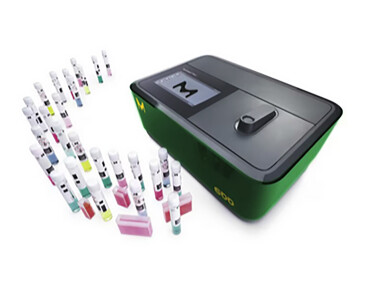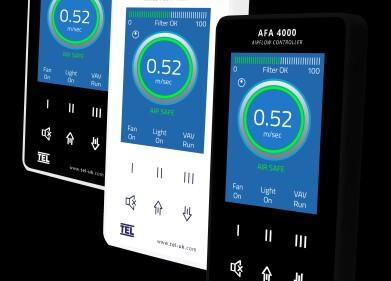Laboratory products
First Data Release of 1000 Genomes Project
Jul 07 2009
Applied Biosystems and scientists from the Baylor College of Medicine Human Genome Sequencing Center (HGSC), have summarised their collective contribution to the first data release of the 1000 Genomes Project. As a commercial participant, and as part of Applied Biosystems’ collaboration with the HGSC, more than 460 gigabases of unique mappable sequence data has been generated by the SOLiD™ System, representing 65% more than the target for the two organisations when the collaborative project was conceived.
The 1000 Genomes Project aims to sequence the genomes of approximately 1,000 people from around the world to create the most detailed and medically useful compendium of human genetic variation. The project will produce a DNA sequence-based genetic map that will enable researchers to better identify disease-related genomic variation, and accelerate efforts to use this information for the development of new strategies for diagnosing, treating and preventing common diseases.
In April 2008, the HGSC established a collaboration agreement with Applied Biosystems to use six SOLiD Systems to expand its contribution to the pilot phase of the project, and help researchers to determine the best approach for accomplishing its goals. The HGSC’s target for contribution to the project using the SOLiD System was 200 gigabases of sequence data. In June 2008, Applied Biosystems joined the 1000 Genomes Project as a commercial participant, and committed to contribute a minimum of 75 gigabases of sequence data using the SOLiD System.
As a result of the pilot phase of the project, use of the SOLiD System for the collaboration between the HGSC and Applied Biosystems produced the following results: the HGSC collected sequence data from 25 genomes, generating 256 gigabases of uniquely mappable sequence data; rhe HGSC sequenced 24 individuals at approximately 2.6-fold coverage, and sequenced one individual at 26- fold coverage; and by the end of 2008, the HGSC was generating an average of 15 gigabases per mate pair sequencing run using the SOLiD 2.0 System.
To date, the SOLiD System has contributed the following to the project: more than 206 gigabases of uniquely mappable sequence data, representing two-fold more data than the original committed target of 75 gigabases; these 206 gigabases averaged 17 gigabases per sequencing run, which was generated on the SOLiD 2.0 System. The throughput per run represents approximately five-fold coverage of the human genome; in the first data release from the 1000 Genome Project, the SNP data from an anonymous African sample was supported by data from the SOLiD 2.0 System; and in the first data release of the 1000 Genomes Project, the small insertions and deletions (indels) data from an anonymous African sample was generated by the SOLiD 2.0 System.
Digital Edition
Lab Asia 31.6 Dec 2024
December 2024
Chromatography Articles - Sustainable chromatography: Embracing software for greener methods Mass Spectrometry & Spectroscopy Articles - Solving industry challenges for phosphorus containi...
View all digital editions
Events
Jan 22 2025 Tokyo, Japan
Jan 22 2025 Birmingham, UK
Jan 25 2025 San Diego, CA, USA
Jan 27 2025 Dubai, UAE
Jan 29 2025 Tokyo, Japan



















